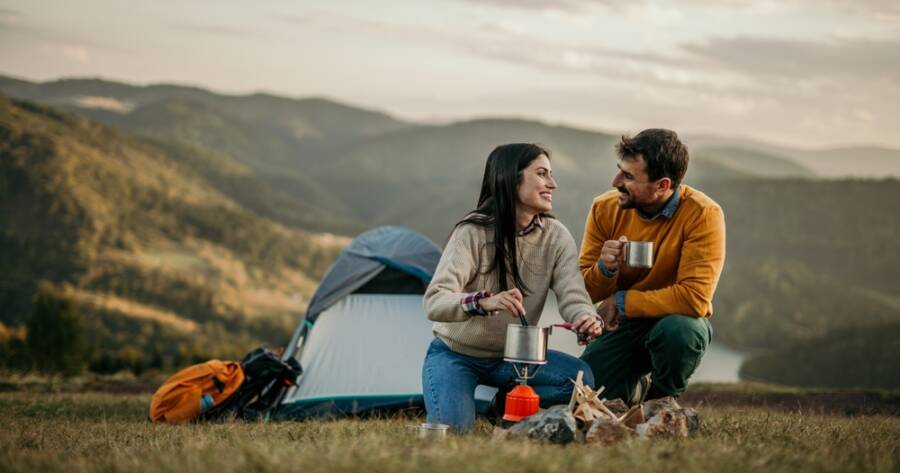Stepping into the backcountry brings a kind of freedom that’s hard to match. With every step away from the trailhead, the noise fades and the world gets quieter. But with that quiet comes responsibility because once you’re out there, you’re on your own. Packing smart makes the difference between a trip that feels empowering and one that turns stressful. The key is learning what to bring, what to leave behind, and how to trust your own resourcefulness.
Start with Safety: The True Non-Negotiables
Safety gear should always be the first thing packed. That means a physical map and compass, even if you plan to use GPS. Electronics fail, but navigation tools—and the skills to use them—don’t run out of battery. A basic first aid kit is essential too, tailored to your trip length and personal needs. Add in a whistle, headlamp, and emergency blanket to cover unexpected delays or weather shifts.
Bear spray, satellite messengers, and personal locator beacons may also be worth the weight in some regions. Research your route, wildlife, and weather patterns before you go. Having the right safety gear won’t slow you down—it will give you the confidence to venture further, knowing you’re equipped to handle the unexpected.
The Sleep System: Light, Warm, and Reliable
Sleep is vital in the backcountry, and your gear needs to keep you warm and dry without overloading your pack. A lightweight, three-season tent or a well-structured tarp can provide enough shelter for most trips. If you’re solo, consider a bivy sack or one-person tent to save space and weight. Choose a sleeping bag rated for colder temperatures than you expect—mountain nights often surprise even summer campers.
Pair that with a compact sleeping pad that insulates and cushions. Inflatable models are comfortable but require care; foam pads are durable but bulkier. Good sleep keeps your mind sharp and your body energized. It’s worth testing your setup before the trip, even if that means a trial night in your backyard.
Eat, Drink, and Filter: Keeping Fuel Simple
Food doesn’t need to be gourmet, but it should be calorie-dense, lightweight, and easy to prepare. Dehydrated meals, instant oats, trail mix, nut butters, and jerky all pack well and require minimal prep. A compact backpacking stove and fuel canister make cooking more efficient than trying to manage a fire in unpredictable conditions.
Water is the heaviest item to carry, so filtering becomes essential. A squeeze filter, gravity system, or purification tablets can keep your load light and your hydration steady. Research water sources on your route and bring a backup method. Going without food for a while is uncomfortable—going without clean water is dangerous. Prioritize hydration planning just as carefully as you plan your trail.
Multi-Use Is Magic: Gear That Earns Its Place
When weight matters, every item in your pack should serve more than one purpose. A buff works as a headband, neck warmer, or face cover. A lightweight tarp can double as shelter, ground cover, or an emergency poncho. Trekking poles add stability and can support some ultralight tents. Even your cook pot can function as a cup, bowl, and wash basin.
Avoid overpacking by resisting the urge to bring gear for “just in case” scenarios that aren’t truly likely. Ask yourself: will this item improve my safety, comfort, or navigation in a meaningful way? If the answer’s no, leave it behind. Let function drive your decisions—not fear or the pressure to have every tool available.
What to Leave Behind (And Not Feel Bad About)
It’s easy to get caught up in gear reviews and think you need a closet full of backcountry gadgets. But luxuries often become burdens on your back. Don’t bring full-size toiletries, extra outfits, heavy books, or oversized tools. Most first-timers bring too many “what if” items and regret the weight halfway up the trail.
Leave behind anything you wouldn’t be willing to carry up a steep incline. Focus on packing for necessity, not novelty. The simplicity of backcountry travel is part of the reward—embracing that lightness allows you to move freely and think clearly. Letting go of extra gear often mirrors the mental clarity many find while hiking miles from cell service.
What You Carry, Carries You
Every item in your pack becomes part of your experience—from how fast you move to how grounded you feel. Smart packing builds confidence and clarity, letting you focus on the sunrise instead of your sore shoulders. You don’t need to be a minimalist to be efficient. You just need to know your route, your limits, and your real needs. Backcountry camping isn’t about having it all—it’s about having enough to feel prepared, connected, and fully present in the wild.

